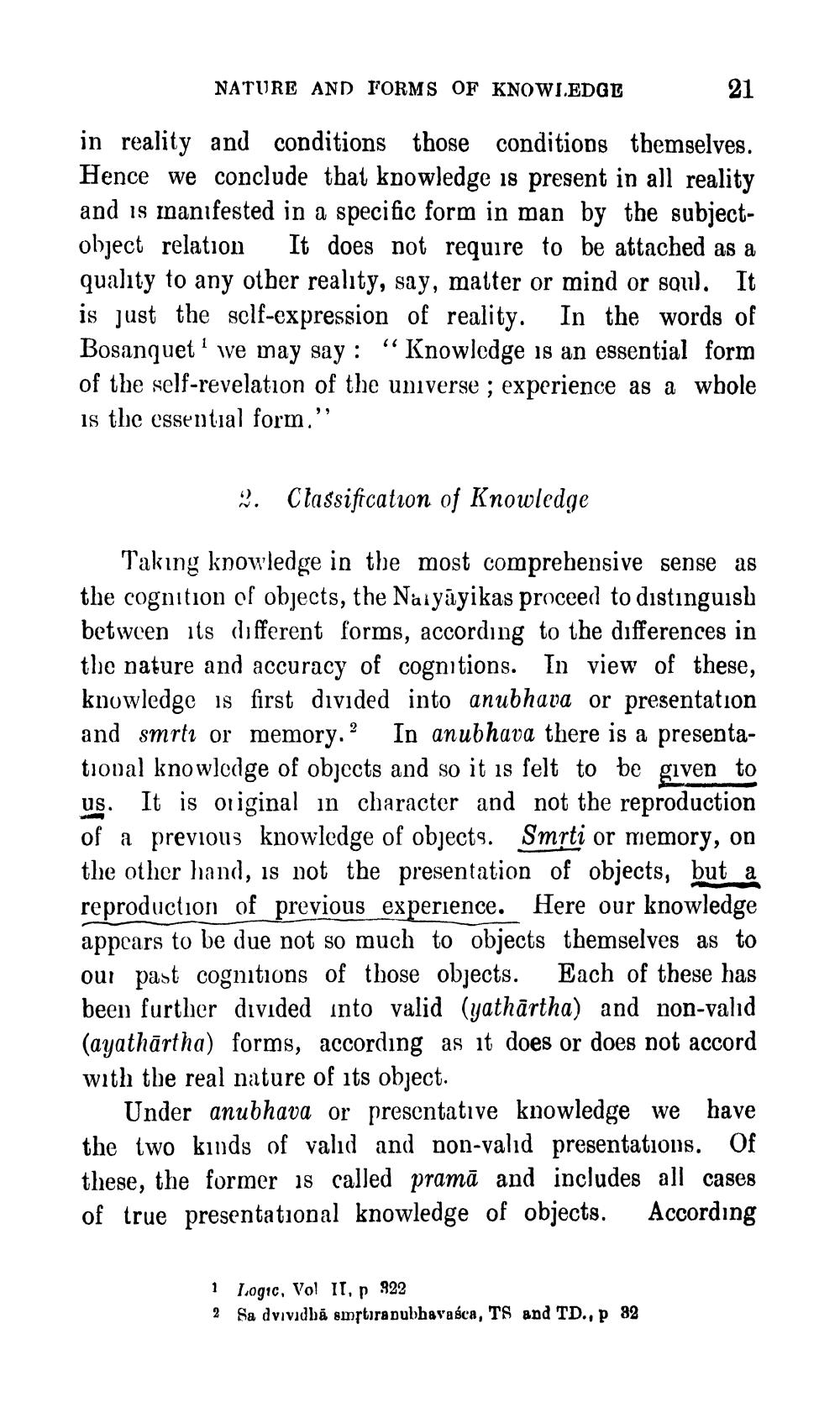________________
NATURE AND FORMS OF KNOWLEDGE
21
in reality and conditions those conditions themselves. Hence we conclude that knowledge 18 present in all reality and is manifested in a specific form in man by the subjectobject relation It does not require to be attached as a quality to any other reality, say, matter or mind or squl. It is just the self-expression of reality. In the words of Bosanquet' we may say : “Knowledge is an essential form of the self-revelation of the universe ; experience as a whole is the essential form."
2. Classification of Knowledge
Taking knowledge in the most comprehensive sense as the cognition of objects, the Naiyāyikas proceed to distinguish between its different forms, according to the differences in the nature and accuracy of cognitions. In view of these, knowledge is first divided into anubhava or presentation and smrti or memory.? In anubhava there is a presentational knowledge of objects and so it is felt to be given to us. It is ouiginal in character and not the reproduction of a previous knowledge of objects. Smrti or memory, on the other hand, is not the presentation of objects, but a reproduction of previous experience. Here our knowledge appears to be due not so much to objects themselves as to our past cognitions of those objects. Each of these has been further divided into valid (yathārtha) and non-valid (ayathārtha) forms, according as it does or does not accord with the real nature of its object.
Under anubhava or presentative knowledge we have the two kinds of valid and non-valid presentations. Of these, the former is called pramā and includes all cases of true presentational knowledge of objects. According
1 Logic, Vol II, p 922 2 Sa dvividbá smrtirapubhavasca, Ts and TD., P 82




